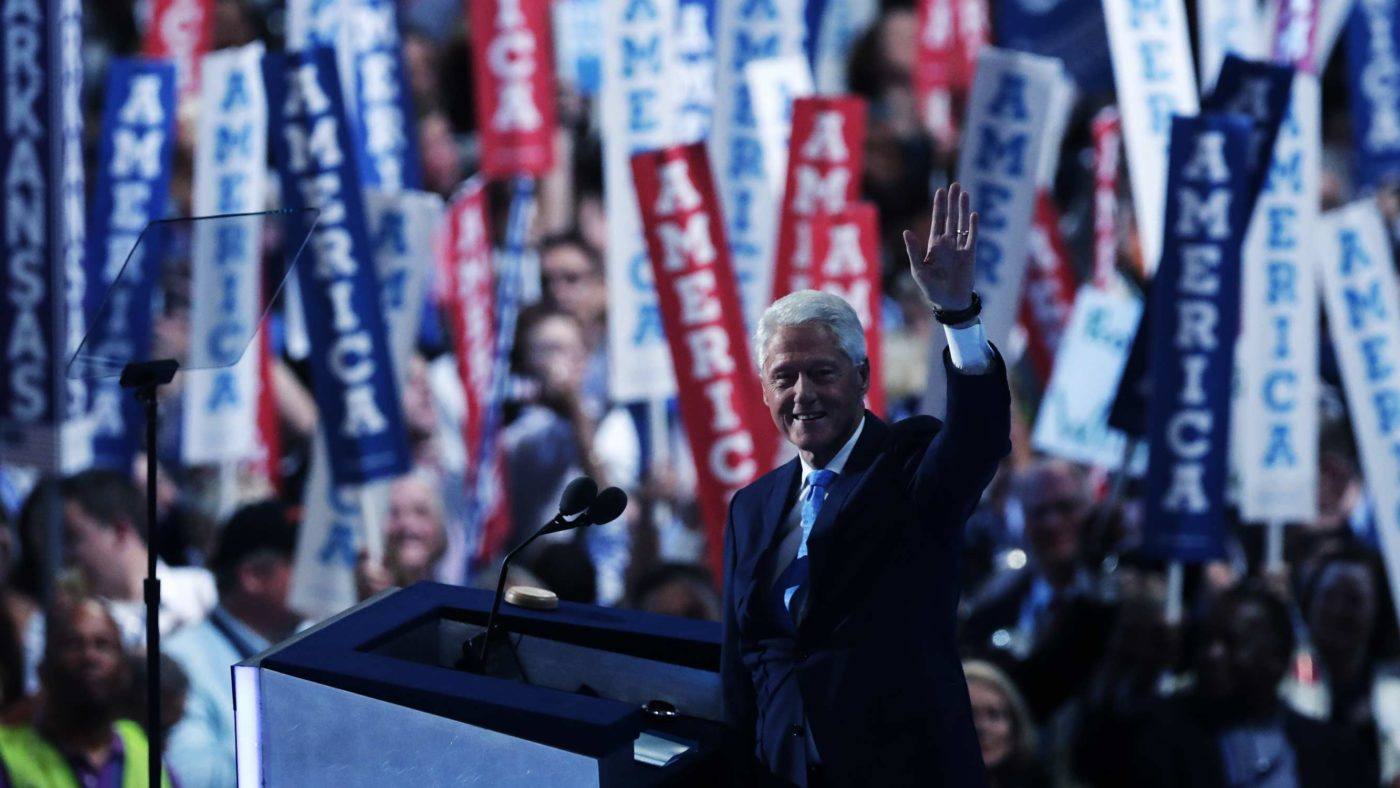Hillary Clinton has a communication problem. As she has admitted, the newly-crowned Democratic candidate is a better listener than speaker, which helps explain why her popularity in office is so dramatically higher than when she’s running for it. Therein lies the challenge: how can Hillary hope to win over independents and reluctant Democrats, in a campaign against a man whose rhetoric lies at the core of his appeal?
Tomorrow’s DNC finale in Philadelphia offers a big opportunity. Speaking after her daughter Chelsea, Hillary Clinton will hope to persuade swing voters to rethink her personality, in spite of an alarmingly high popularity deficit. Other speakers have sought to hammer home this message. First Lady Michelle Obama gave a highly personal speech in support of her friend on Monday, and last night we heard numerous tributes from Mothers of the Movement and those who worked with Hillary after 9/11. Tonight, President Barack Obama and his deputy Joe Biden will have powerful words to say.
However, it is her husband Bill who may hold the key. In a masterful speech last night, reminding the nation just how good a speaker he is, the former President showed his power in the art of persuasion. While conventions often just serve as echo chambers, if anyone has managed to force undecided voters to give Hillary another look, it is the master communicator Bill Clinton.
There are only a handful of figures in modern political history that can hold an audience’s attention for 40 minutes. Bill Clinton had viewers – both in the crowd and the millions watching on TV – hanging on his every word. It is a skill which President Barack Obama used to capture the nation’s imagination, and one which Donald Trump does not possess in the same way: his appeal lies in controversial soundbites and, as Michelle Obama quipped, issues “cannot be boiled down into 140 characters”.
Bill Clinton moved effortlessly between very personal stories and political achievements, extolling the virtues of his wife to a captivated audience. He began by telling the story of when they first met, “in the spring of 1971, I met a girl”, and how he worked to persuade her to marry him. This then transitioned smoothly into several accounts of her dedication to public service, his speech making sure to tick every box for his wife. Talking about her work as FLOTUS, he highlighted her bipartisan efforts “with Republican Tom DeLay to make adoption easier”, and fighting through an obstinate Congress to work on health improvements. Supporting the ‘Stronger Together’ theme, Bill reached out to tax-paying illegal immigrants, Muslims who hate terror, and “disillusioned and afraid” African-Americans, saying “we want you”.
If Bill had one take-home message for the audience, though, it was to unravel the “cartoon” of Hillary Clinton which has been created by her opponents: an issue at the core of her lack of appeal. Far from a cartoon, Bill said she should be seen as a “real change-maker”, who represents a problem for those who campaign “on the theory that government is always bad”. Aware of her status quo reputation, Hillary’s ability to make changes was at the core of Bill’s speech: as he repeated more than once, she is “the best darn change-maker I ever met in my entire life”.
Despite the very public shortcomings in their relationship, Bill still holds huge appeal to the population: even after attempted impeachment he left the White House with a two-thirds approval rating. If the campaign can successfully harness the powers of their great communicator, perhaps independent voters will think twice about the cartoon they have been presented, and a great listener will enter the White House.


